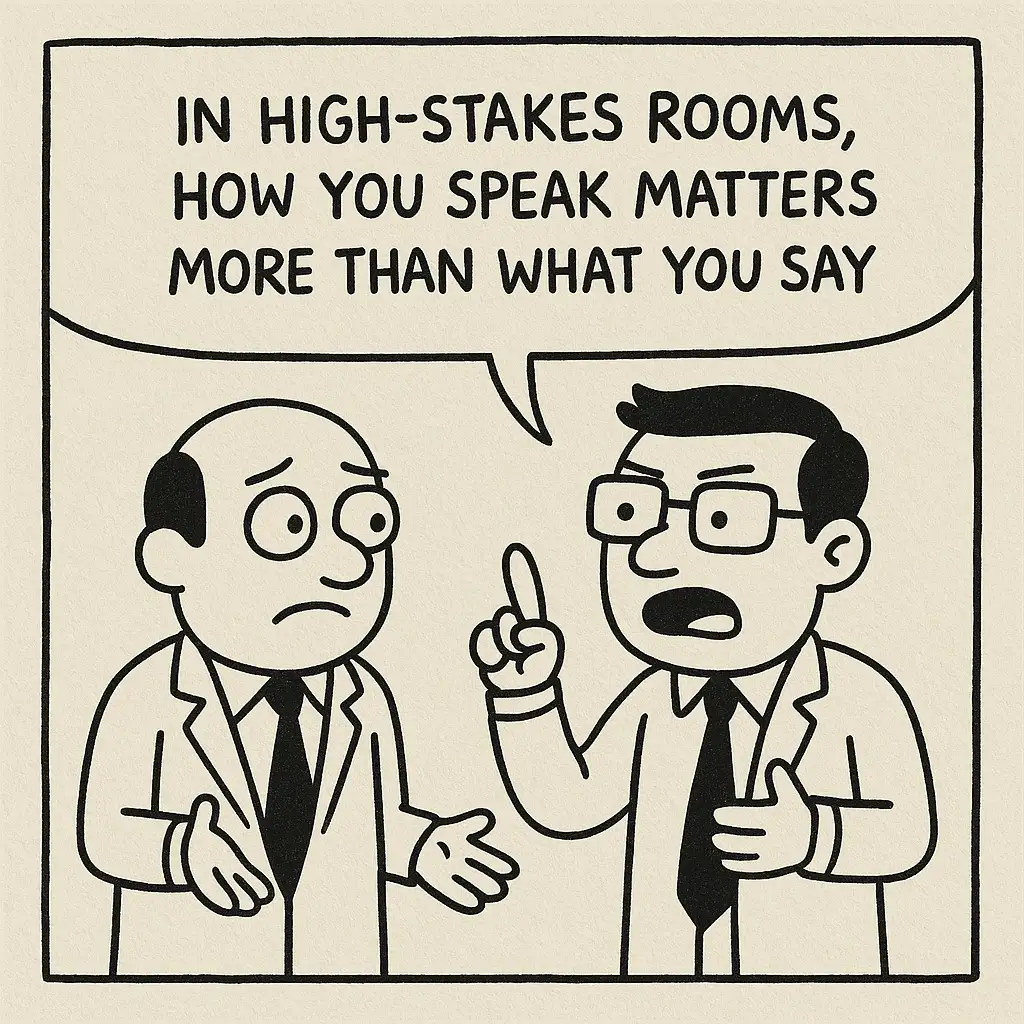I watched my friend ruin his career in under three minutes.
No scandal.
No big mistake.
Just words.
He thought he was being honest.
He thought he was showing leadership.
But what he actually did was burn every bridge in the room.
That day, I learned a lesson I still use today — in every high-stakes conversation, every leadership moment, and every room where the stakes are real.
Let me take you back.
Two candidates. One shot.
We were both being considered for a big promotion.
Same experience.
Similar results.
Equally respected.
He got the final meeting with the executive team. I didn’t.
At first, I was disappointed. I thought he had it in the bag.
I was wrong.
The question that changed everything
During the meeting, one of the execs asked him a simple question:
“What do you think we could improve as a team?”
A golden opportunity.
This was his moment to show vision, maturity, leadership.
Instead, he took a deep breath — and started listing everything that was wrong.
He talked about poor leadership.
Lack of direction.
Broken communication.
And he didn’t hold back.
It lasted less than three minutes.
But by the time he was done, the decision was made.
Not in his favor.
Here’s the thing:
He wasn’t wrong.
Most of what he said was actually true.
But how he said it? That was the real problem.
He spoke with frustration. With blame.
And without a single mention of solutions or responsibility.
He thought he was being “real.”
They saw someone bitter, negative, and unready for leadership.
And once the tone of the conversation shifted, there was no recovering.
I learned something crucial that day:
In high-stakes rooms, how you speak often matters more than what you say.
You can be absolutely right —
and still lose the room if your delivery triggers defensiveness instead of trust.
This is the part no one teaches you.
We’re told to “speak up,” “be authentic,” “tell the truth.”
But no one explains what happens when you do it without emotional intelligence.
Honesty isn’t the goal. Impact is.
If you want to speak truth to power, you need more than just facts.
You need strategy. And skill.
Since that day, I’ve used a simple filter every time I need to deliver hard truths:
- Respect first. Never attack. Even if you disagree.
- Clarity over emotion. Say what matters, not everything you feel.
- Solutions over blame. If you don’t offer a better way, don’t expect people to listen.
Truth without tact burns bridges.
Truth with intention builds them.
The ending you already saw coming
A few days later, the job was offered to me.
Not because I was better.
But because I understood what he didn’t:
Being right is not enough.
Four months later, he left the company.
Still frustrated. Still convinced he was punished for being honest.
But he wasn’t punished for the truth.
He lost the room because of how he showed up in it.
My advice?
Speak the truth — but speak it with skill.
Otherwise, you might win the argument and lose the opportunity.
Have you ever seen someone self-sabotage in a moment that mattered?
Or maybe you’ve learned a hard lesson about how to deliver tough feedback?
I’d love to hear your story.
And if this resonated, check out my article on the power of silence — how sometimes you can win by saying nothing at all.

Leave a Reply